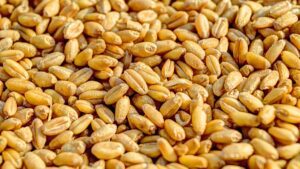
NJSC Naftogaz Ukrainy failed to obtain consent to a two-year deferral of interest payments and redemption on any of its three eurobond issues, the company said on the Irish Stock Exchange.
According to the report, the required quorum (over 2/3) was reached only at a meeting as for eurobonds worth $335 million maturing in July 2022, however, only about 22% of the votes were provided, with the required minimum being 75%.
There was no quorum for the other two issues for EUR600 million maturing in 2024 and for $500 million maturing in 2026, so repeat meetings will be called.
Naftogaz specified that the owners of approximately 49% of the bonds registered for the 2024 eurobond meeting and approximately 74% of the votes were in favor of the Naftogaz proposal.
As for the 2026 eurobonds, which are due in November, about 54% registered for the meeting, and about 43% of the votes were in favor of deferment.
Repeat meetings for 2024 eurobonds and 2026 eurobonds are scheduled for August 31 at 11:00 and 11:15 London time, respectively.
Based on the quorum presented at the initial meetings, it is expected that the adjourned meetings that will be held in respect of the 2024 and 2026 bonds will have a quorum, Naftogaz notes.

The consumer sentiment index (CSI) of Ukrainians improved by 1.1 points in July to 73.2 points on a 200-point scale, according to a study by the Info Sapiens agency.
“The main indices stabilized in July and statistically changed little compared to June 2022. The current position index has significantly slowed down the rate of decline, and the economic expectations index even showed an upward trend. At the same time, unemployment, inflation and devaluation expectations are worsening,” commented agency situation.
According to the study, the current position index fell by 1.1 points to 37.2 points. In particular, the current personal financial situation index dipped by 2.9 points last month to increased by 0.8 p. – up to 43.8 p.
In addition, the index of economic expectations (EI) in July increased by 2.5 points – up to 97.2 points. In particular, the index of the expected development of the country’s economy in the coming year increased by 2.2 points – up to as for the next five years decreased by 2.5 percentage points – to 133.9 percentage points.
Reportedly, the index of expected changes in personal financial situation increased by 7.7 points to 78.8 points.
The Info Sapiens report also indicates that the July index of the expected unemployment dynamics in Ukraine increased (worse – IF-U) by 3.7 points, to 146.4 points, and the inflation expectations index – by 0.6 points. , up to 183 p.
At the same time, Ukrainians’ expectations regarding the hryvnia exchange rate worsened in the next three months: the index of devaluation expectations rose by 5.4 percentage points to 157.5 percentage points.
The study of consumer sentiment is carried out by interviewing 1,000 people aged 16 and over on a representative sample of gender, age, and size of the settlement. The statistical deviation does not exceed 3.1%. The study has been conducted since June 2000: earlier it was conducted by GfK Ukraine, and since 2019 by Info Sapiens.

A convoy of four ships loaded with food departed from two Ukrainian ports on Wednesday, the Anadolu agency said with the reference to the Turkish Defense Ministry.
The ships, carrying sunflower oil, oil cake and corn, sailed out of Odesa and Chornomorsk, the ministry said.
On July 22, Russia, Turkey, Ukraine and the United Nations signed two documents to create a corridor for grain exports from three Ukrainian seaports: Chornomorsk, Odesa and Pivdenny. The parties also established the joint coordination center monitoring food supplies that brings together representatives of Russia, Turkey, Ukraine and the UN.
In all, 25 ships loaded with food have departed from Ukrainian ports since August 1 consistent with the agreement.

The United States of America will provide the UN World Food Program (WFP) with $68 million to buy wheat in Ukraine and then send it to countries most vulnerable in terms of food security, US Secretary of State Antony Blinken has said.
“The United States will contribute $68 million to the World Food Program to purchase Ukrainian wheat to address the acute global food crisis. We are committed to maintaining global food security for the most vulnerable and urge all countries to follow suit,” Blinken said on Twitter on Wednesday.
As reported, on June 28, the Cabinet of Ministers of Ukraine approved a draft agreement with WFP on the resumption of the work of its office in the country, which will allow the organization, among other things, to purchase agricultural products from Ukrainian companies for the implementation of international humanitarian programs.
WFP is expected to participate in the purchase of agricultural and food products from Ukrainian companies for the needs of UN international humanitarian projects.

Five ships loaded with grain, including corn and wheat, departed Ukrainian ports on Tuesday, the Anadolu news agency reported with reference to the Turkish Defense Ministry.
Two ships left Pivdenny port and three others Chornomorsk port, it said.
The Joint Coordination Center in Istanbul is also set to inspect four vessels en route for Ukraine to be loaded with grain on Tuesday.
Participants in four-sided negotiations (the United Nations, Russia, Turkey, and Ukraine) signed two documents in Istanbul on July 22 regulating the functioning of a sea corridor for exporting grain from the Ukrainian seaports of Odesa, Chornomorsk, and Pivdenny.

The German concern Bayer AG, which specializes in biomedical solutions for healthcare and agriculture, has decided to continue supplying basic agricultural solutions to Russian farmers so that they can contribute to meeting global demand.
At the same time, Bayer hopes “that the Russian authorities will continue to provide free supplies of agricultural products” and “will not use food as a means of pressure on the world,” the company’s statement emphasizes.
At the same time, Bayer intends to invest heavily in Ukraine over the next decade. In particular, the company is investing more than EUR30 million in a seed plant in the Zhytomyr region to meet the demand for corn seeds in the country and abroad.
Bayer is fully committed to fighting what could become an unprecedented food crisis and shares the UN’s view that access to Ukrainian and Russian food is essential to reduce pressure on the global food system, the release notes.
Earlier, the company stopped deliveries to the Russian Federation and Belarus of those products that are not vital, and also suspended advertising and promotional activities, investments in these countries.